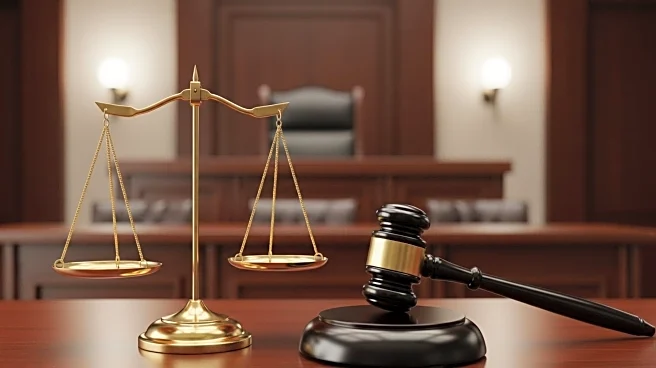What's Happening?
A former law clerk to Justice Clarence Thomas has expressed concerns about the Supreme Court's interpretation of the Constitution, suggesting it may be moving towards a pro-president stance. Caleb Nelson, a legal scholar, argues that the Constitution allows Congress significant authority to organize the executive branch and limit the president's power to remove officials. This issue is currently under consideration by the Supreme Court, which recently allowed President Trump to remove Federal Trade Commission leader Rebecca Kelly Slaughter, a decision that Slaughter claims violated Supreme Court precedent. The Court is set to hear arguments in December regarding whether to overturn a 1935 precedent limiting the president's ability to remove independent agency regulators.
Why It's Important?
The potential adoption of the unitary executive theory by the Supreme Court could significantly increase presidential power, allowing the president to remove executive branch officials at will. This shift could impact the balance of power within the federal government, potentially undermining the independence of regulatory agencies. Legal scholars and commentators have raised concerns about the implications of such a move, suggesting it could lead to lasting damage to democratic norms and institutions, especially if a president engages in vengeful or lawless behavior. The decision could affect how executive power is exercised and the checks and balances that currently exist.
What's Next?
The Supreme Court will hear arguments in December on whether to overturn the precedent limiting presidential power to remove independent agency regulators. The outcome of this case could set a significant legal precedent, influencing future interpretations of executive power. Legal experts and scholars are closely watching the case, as it may redefine the scope of presidential authority and impact the functioning of federal agencies. The decision could also provoke reactions from political leaders and civil society groups concerned about the concentration of power in the executive branch.
Beyond the Headlines
The debate over the unitary executive theory touches on broader constitutional and democratic principles, including the separation of powers and the role of Congress in shaping the executive branch. The potential shift in judicial interpretation could lead to long-term changes in how executive power is understood and exercised in the United States. It raises ethical and legal questions about the balance between presidential authority and the independence of federal agencies, which are designed to operate free from political influence.











